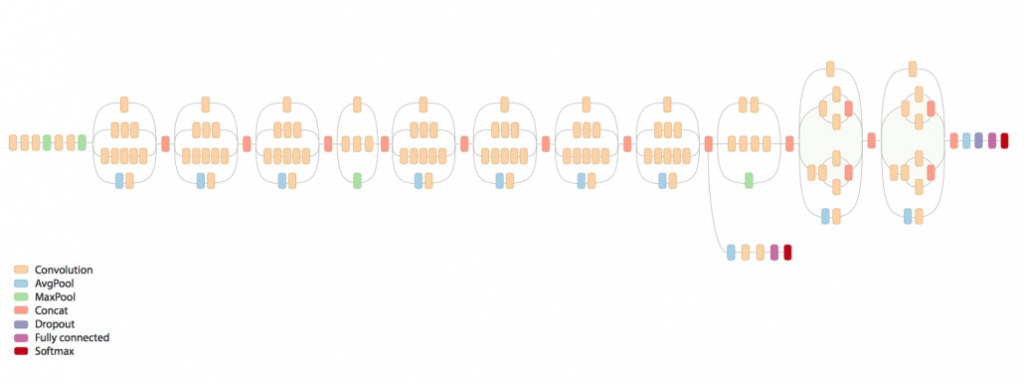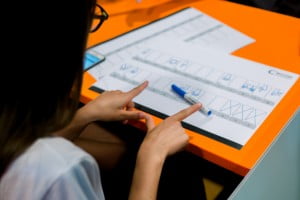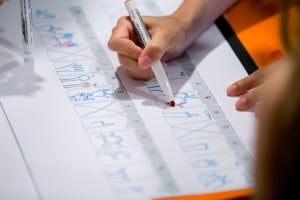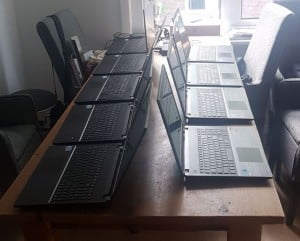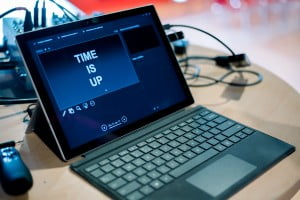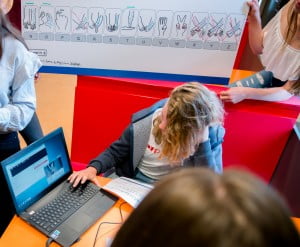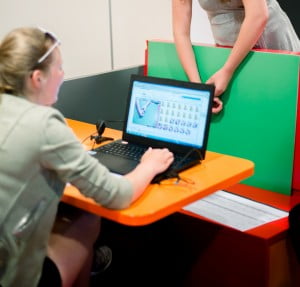
Education for the Next Generation: a Handsign recognition project in Python
“Could you create a handsign recognition model which we can use to teach High School students a bit more about A.I. in a fun way?”
This is the question a few colleagues asked a couple of weeks ago, and ofcourse, the only real response here could be YES! I was immediately enthusiastic and started working on this fun project.
After a lot of messing around with different models, among which xgboost and neural networks, I found a real goldmine. Which, in this case, was the GitHub page of loicmarie, where he created a script to not only train such a model using an Inception Model (convolutional neural network classifier), but also use it. So I combined my own script with the ones of loicmarie and we were ready to go!
The Inception Model V3 is a deep learning model created by Google based on images from ImageNet.
The Inception Model is capable of classifying images in 1.000 classes with an error rate like a human would have. An impressive model, which isn’t only cool on its own, but can also be used for Transfer Learning. Which means we can use the knowledge from this model and expand it with our own images. Which makes it quite “easy” and “fast” to create a good performing model on our own images, which, in this case, are different handsigns.
When we arrived at the High School, we first gave the students an introduction to what A.I. actually is and where they encounter A.I. in their world. After that we introduced them to our handsign recognition model and gave them the assignment to create their own handsigns.
After which they used a script to take their own pictures for each handsign.
And then it was time for us to put our computers to work! It started with a script to generate 10.000 pictures for each handsign. As soon as this script was ready, the training of the model started.
After 23 hours (!) all the models were succesfully trained and it was battle time! The group who could write the most flawless text, using their own handsigns, within 5 minutes was the project-winner!
Check out this video to see how it works:
Are you interested in our code? Please feel free to take a look at our GitHub repo!
